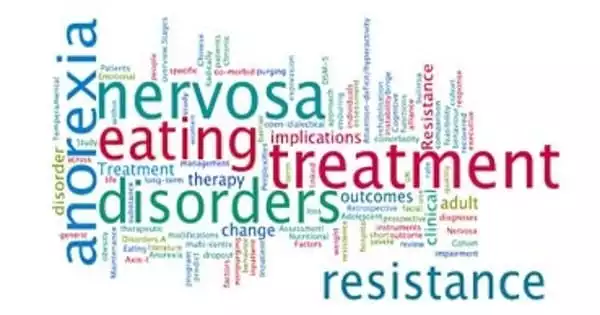For some women, especially those who have an eating issues, pregnancy can be a stressful and worrisome period. Weight gain and changes in body shape can result in a relapse or worsening of the eating problem. In contrast, the eating disorder may improve as a result of the woman’s concerns about its negative effects on her unborn child.
Eating disorders, such as anorexia nervosa, bulimia nervosa, and other specified feeding or eating disorder (OSFED), most typically manifest during adolescence or early adulthood and disproportionately affect women. These illnesses frequently linger, and it is not uncommon for them to last into a woman’s reproductive years.
According to a Monash University-led study, pregnant women with anorexia are more likely to have a stillbirth, an underweight baby, or a pre-term birth, yet there are no clear standards for how doctors should manage the illness.
Researchers in Melbourne, Australia, led by Professor Megan Galbally, Director of the Centre for Women’s and Children’s Mental Health at Monash University’s School of Clinical Sciences, have produced recommendations and principles for multidisciplinary care of anorexia nervosa in pregnancy.
Assessment measures used outside of pregnancy, such as the Eating Disorder Inventory or dependence on body mass index, have been proven to have limited validity in pregnancy. Clearly, the assessment and monitoring of measurements and instruments for anorexia nervosa must be modified in the setting of pregnancy.
Professor Megan Galbally
These suggestions, which were published in The Lancet Psychiatry, include an emphasis on the specialized mental health, obstetric, medical, and nutritional care needed to achieve the best results for women and their infants.
Anorexia nervosa is more common in women of childbearing age, with up to one in every 200 pregnant women suffering from the disorder. It is commonly accompanied with limiting, binge and purging, or both.
According to Professor Galbally, there is a scarcity of studies and clinical advice on how to manage pregnant women with anorexia. “In contrast to mood disorders, anxiety disorders, and psychotic disorders, there is little guidance and research available for anorexia nervosa in pregnancy. Perinatal mental health standards, including those in the United Kingdom and Australia, make only a passing reference to the assessment and management of eating disorders during pregnancy” She stated.
“Assessment measures used outside of pregnancy, such as the Eating Disorder Inventory or dependence on body mass index, have been proven to have limited validity in pregnancy. Clearly, the assessment and monitoring of measurements and instruments for anorexia nervosa must be modified in the setting of pregnancy.”

In general, research into the health of pregnant women has highlighted the importance of maternal antenatal nutrition, pregnancy weight gain, and the infant’s birth weight as critical risk factors and critical intervention points for improving lifelong health, including areas such as heart disease, diabetes, and obesity.
Anorexia nervosa, according to the study’s authors, may have an impact on obstetric and neonatal outcomes due to low calorie intake, nutritional and vitamin deficiencies, stress, fasting, low body mass, and issues with placental function. Furthermore, psychological and emotional concerns associated with untreated or undertreated anorexia nervosa in pregnancy include perinatal sadness and anxiety.
Obesity issues are becoming more common in women suffering from anorexia nervosa. Women with anorexia nervosa in pregnancy had 1.32 times the risk of preterm birth, 1.69 times the risk of a baby with low birth weight, and 1.99 times the chance of stillbirth compared to women without anorexia nervosa in pregnancy, according to a 2020 study from Canada.
“Management of anorexia nervosa necessitates a multidisciplinary team approach with expertise in mental health, specialist medical care, and dietetics at a minimum; in pregnancy, key experts include obstetricians (particularly experts who manage high-risk pregnancies), physicians with pregnancy expertise, dieticians who also have expertise in pregnancy nutrition requirements, paediatricians, and mental health clinicians with perinatal expertise,” the authors recommend.
“While many of the principles developed for the management of anorexia nervosa in adults are applicable in pregnancy, they require expert modification and adaptation to the significant physiological, psychological, and social changes in pregnancy, and foetal growth and wellbeing should also be taken into account.”
Outcome studies, on the other hand, have consistently found that fertility rates in women with a lifetime history of anorexia nervosa do not differ from those in women without such a history. Thus, despite the high prevalence of monthly irregularities, it appears that women with anorexia nervosa are becoming pregnant.
Many women with bulimia nervosa, including those who are in a “healthy” weight range, have irregular menstrual cycles. Fertility, on the other hand, does not appear to be a serious issue for women suffering from bulimia nervosa.
















